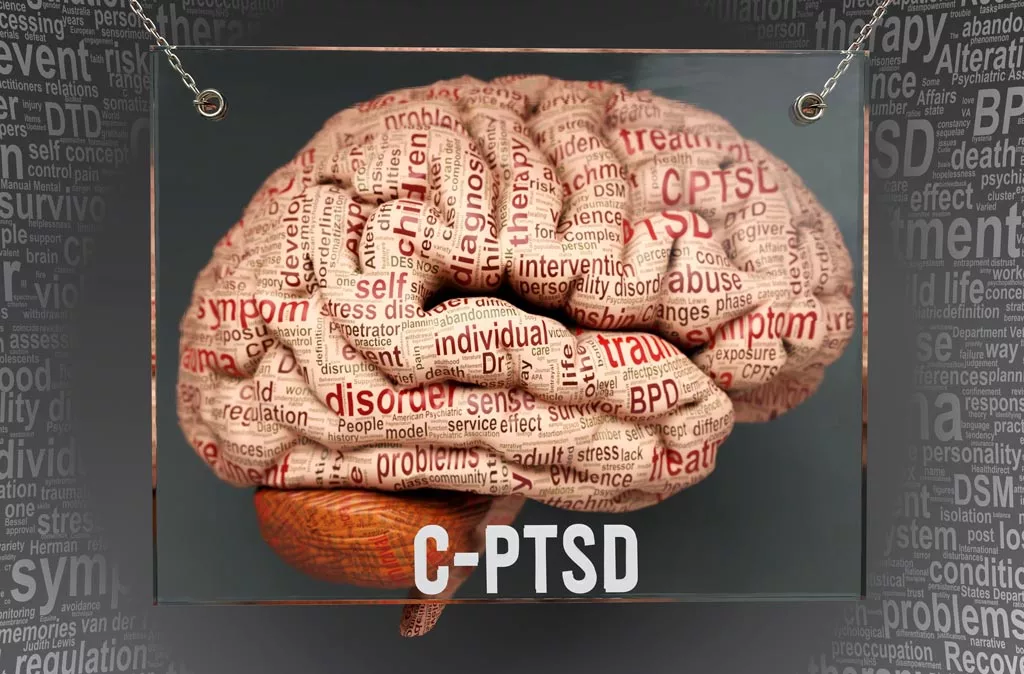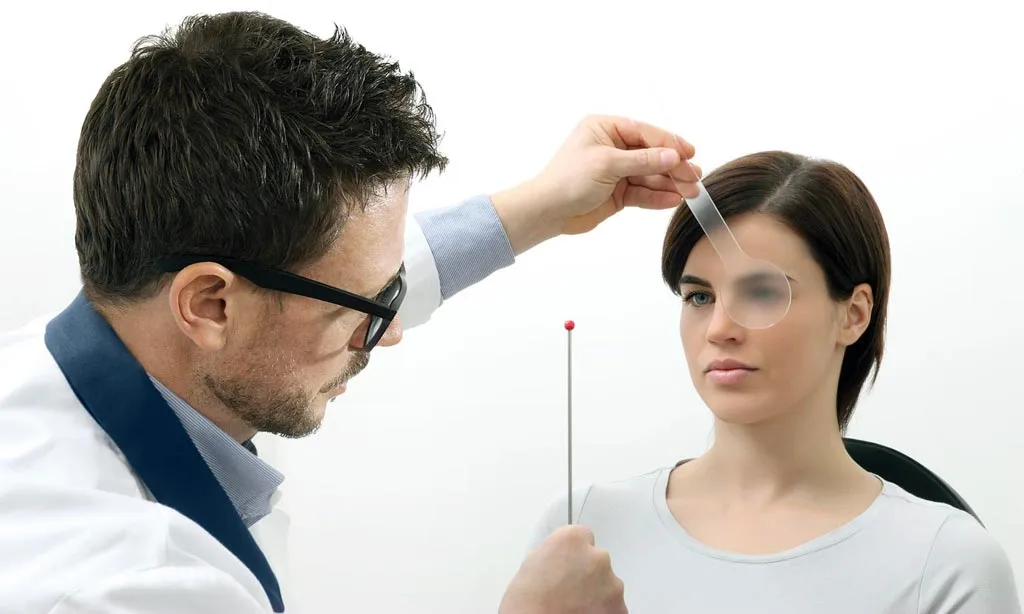What is Complex PTSD or C-PTSD?
Table of Contents
Complex post-traumatic stress disorder (or C-PTSD) is a condition that develops in some people who have suffered repeated or prolonged trauma. It’s important to note that C-PTSD is not yet recognized by the DSM-5, which is the latest edition of the Diagnostic and Statistical Manual of Mental Disorders. This means that it’s not officially recognized as a mental health condition, but yet continues to be diagnosed and has thousands of people struggling with its effects on a daily basis.
Keep reading to find out more about repeated trauma, how to heal complex trauma, and the nature of residential treatment for PSTD and CPTSD at Emerald Isle.
The Evidence for Complex PTSD

We usually think of the most dramatic, traumatic events when we think of post-traumatic stress disorder (PTSD). And while C-PTSD is often associated with experiences that can be considered less severe than what is traditionally used to diagnose PTSD, it’s important to remember that no matter how big or small an event may seem at first, it can still have a significant impact on someone’s life and mental health.
How is complex trauma different from other forms of trauma?
Complex trauma is a form of chronic stress response that occurs when a person experiences prolonged and repeated exposure to traumatic events. It can linger for quite some time. This disorder can happen at any age and can affect anyone.
According to the American Psychiatric Association, PTSD is an anxiety disorder that may develop after a person has experienced or witnessed a dangerous event, either firsthand or learning about it secondhand (for example, through the news). Traumatic events include rape, physical assault, car accidents, and natural disasters.
Complex trauma differs from the typical because it is not limited to just one experience. Instead, it results from ongoing exposure to multiple traumatic events or incidences.
What are the causes of C-PTSD?
People with complex PTSD may have been exposed to multiple traumas or long-term traumatic circumstances, such as long-term physical or sexual abuse, childhood neglect (such as being abandoned by caregivers), domestic violence, or other forms of interpersonal violence.
A complex posttraumatic stress disorder has been initially linked to the finding of CPTSD substance misuse and CPTSD alcohol dependence. While not as frequently encountered as other forms of dual diagnosis conditions involving substance use disorders and trauma, the increasing prevalence of complex trauma clients indicated this may form a growing treatment need in the near future.
Other risk factors can include coping with a chronic illness such as cancer, living in war zones or refugee camps, experiencing torture or political imprisonment, or being involved in motor vehicle accidents.
Free Mental Health Assessment
What are the Symptoms of Complex Post Traumatic Stress Disorder?
The symptoms of C-PTSD are similar to those of other types of PTSD. However, it is not uncommon for individuals with C-PTSD to experience additional symptoms related to the unique aspects of their trauma history.
The symptoms of complex PTSD include a loss of trust in self and others, lack of belief in one’s own strength or capabilities, chronic feelings of shame or guilt, an inability to feel enjoyment or satisfaction from formerly pleasurable activities, self-destructive behavior like eating disorders or drug abuse (particularly alcohol), depression, dissociation (feeling like you are outside yourself watching what’s happening instead of experiencing it), feelings of detachment from others and life in general.
Persons struggling with C-PTSD have difficulty feeling and regulating emotions and impulses. They may have trouble controlling anger and difficulty maintaining close relationships. Other forms of mental health disorders may mimic or occur alongside CPTSD symptoms, such as anxiety and depression association issues, and even borderline personality disorder.
Other broad symptoms of CPTSD include:
- Chronic Hyperarousal – This can lead to insomnia, irritability, poor concentration, extreme startle response, and anger outbursts.
- Intrusive thoughts about past trauma that cause intense fear and distress.
- Dissociative Episodes – These episodes may manifest as feeling detached from yourself or your surroundings, flashbacks, or nightmares.
- Avoidance of stimuli associated with the trauma – Persons with CPTSD may avoid places or activities that trigger memories of the trauma.
It is critically important to know that symptoms of complex PTSD can be reduced by medication for some people. However, it is essential to realize that medications may not be effective for everyone, and they are not effective in treating every symptom.
How does C-PTSD affect your brain chemistry?
The chemical messengers in your brain are called neurotransmitters. They help send messages from one nerve cell to another. There are many different types of neurotransmitters, including dopamine and serotonin.
When someone experiences trauma, the brain can become flooded with adrenaline and cortisol. These chemicals cause our fear and stress responses, lasting for a long time after the traumatic event. As a result of this flood of chemicals, there are changes in the levels of other neurotransmitters in the brain. Some are decreased (like serotonin), while others are increased (like norepinephrine). This causes chemical imbalances that affect moods and emotions.
Recent Studies on Complex Trauma and its Effects
A study published in the Journal of Affective Disorders found that C-PTSD is associated with lower serotonin levels, a neurotransmitter that affects mood, appetite, and sleep. This is because traumatic experiences can alter how your brain regulates serotonin and dopamine, which are neurotransmitters that affect your mood and ability to feel pleasure.
The effect of these changes on your brain chemistry is that you will have an increased risk for depression and anxiety disorders and drug or alcohol abuse. PTSD residential treatment at an established dual diagnosis treatment center such as Emerald Isle’s can offer a compelling way to treat both trauma and alcohol or substance use disorders.
Research has also found that people with C-PTSD have higher levels of the stress hormone cortisol. Higher cortisol levels can cause problems like anxiety, depression, and insomnia. Not only that, but emerging research indicates that C-PTSD might even go so far as to affect the actual physical composition of the brain.
The hippocampus is a part of the brain that helps us remember things. People with C-PTSD have smaller hippocampi than people without C-PTSD. This might explain why people suffering from the condition have trouble remembering things from their past trauma. They may be more likely to have PTSD flashbacks than people who have experienced trauma but don’t have PTSD.
The amygdala is a part of our brain that helps us recognize and react to danger quickly. The amygdala can be overactive in people with C-PTSD, causing them to overreact to things that remind them of their trauma — even when there’s no real danger.
24 Hour Mental Health Hotline
Do addictive behaviors accompany Complex PTSD?
The Diagnostic and Statistical Manual of Mental Disorders (DSM-5) uses the word “addiction” in two different ways: as a general term for a range of behaviors that consume a person’s time, energy, and resources; and as a specific term for compulsive use of a particular substance.
It is important to note that not all addictive behaviors are associated with substance abuse. For example, gambling is addictive but not a substance abuse problem. Similarly, food addiction has been identified as a separate condition from obesity or other eating disorders. These are referred to as ‘process addictions.’
While it is true that these behaviors can be problematic on their own, they can become even more so when they are co-occurring with complex PTSD because they serve as distractions from the painful memories and emotions associated with the trauma.
Suppose you or a loved one are struggling with addiction alongside complex PTSD. In that case, it is essential that you seek help from a mental health professional who specializes in treating both conditions. This will ensure that your needs are met and that you receive proper treatment for both conditions simultaneously.
Forms of Holistic Therapy for C-PTSD treatment
Treatment of C-PTSD is different than typical mental health treatment. On a fundamental level, it is based on the idea that people with this disorder have had their ability to manage their emotions and impulses severely damaged by the trauma they’ve experienced.
It doesn’t assume they’ll be able to handle those skills on their own or that they’ll be able to find them within themselves again. It focuses on teaching people new ways of regulating their emotions, managing stress, and being more effective at communicating with others — not just teaching them to deal with specific situations or memories. It helps people rebuild their lives after trauma so that they aren’t constantly reliving it repeatedly in their minds.
There are many forms of holistic therapy, but research is still in the early stages. One study found that yoga combined with mindfulness training effectively reduced C-PTSD symptoms. Another study found that eye movement desensitization and reprocessing (EMDR) also helps mitigate C-PTSD symptoms.
The study also found that EMDR helps reduce symptoms by activating the parasympathetic nervous system, which controls the “rest-and-digest” response to stress. The parasympathetic nervous system is also known as the “relaxation response.”
Custom Trauma Treatment at a Holistic Rehab
The truth is that the treatment required to help someone with C-PTSD can vary wildly from person to person. Emerald Isle Recovery offers facilities with, expert, qualified healthcare professionals who work together with every client to find the ideal combination of treatments that can help them process and relinquish themselves from the hold that their trauma has over them.
Often, this will include a mix of evidence-based practices (like Cognitive Behavioral Therapy, Psychotherapy, and Medication Prescriptions) and holistic therapies.
We have mentioned yoga, meditation, and EMDR therapy, but other therapeutic practices can play a part in helping with C-PTSD. Art Therapy is often used to help people process complex trauma, as is Music Therapy. Both of these focus on utilizing emotional expression through artistic means to bring to the surface trauma and create the opportunity for processing, acceptance, and healing.
Finding Effective Complex PTSD Inpatient treatment
Let’s start with this; in the 21st century, there’s no better place to begin the process of gathering information about facilities you might be interested in looking at for you or a loved one than the internet. Google is your friend here. A good starting point is to always run a search for facilities treating C-PTSD in your area. Once you’re looking at your options, keep the following things in mind while evaluating!
One of the first things you should be looking for when searching for an inpatient mental treatment facility is whether or not they have a good reputation. If they don’t, it’s probably not worth it to go there. The only way to know if they’re good is if they’ve been around for a while and have lots of satisfied customers.
What to Look for in Trauma Treatment Programs
Another thing that you can look at is their staff members. Do they have a license from their state to operate? If so, then that’s a good sign that they’re doing something right. If not, it could be because the person who runs the place isn’t qualified enough to do so.
A good treatment facility will have a therapist-to-client ratio that is low enough to ensure that your therapist has time to focus on you and your needs. A good treatment facility will have therapists who have received specialized training in treating complex PTSD and extensive experience working with this population.
It’s also essential to find out if the program offers individual therapy sessions and group therapy sessions. Many people with complex PTSD struggle with social anxiety, so group therapy can be beneficial in helping patients get comfortable around other people again. Individual therapy is also helpful because it allows you to work on specific issues you are having trouble with outside of the group setting.
It would help if you also asked about their aftercare program and how they will help you transition back into society once treatment has ended. Some programs offer job placement services or even financial assistance for those who need it after treatment ends; this can be especially helpful if you don’t have insurance coverage for your medication or therapy sessions after treatment ends.
Ultimately, two of the surest signs of a quality facility are a reputation that precedes them and compassionate, qualified, and polite staff.
Immediate Placement for Mental Health Treatment
Lasting Recovery from Complex PTSD Is Possible
It is possible to recover from complex PTSD, but it requires a lot of work. The key is finding the right treatment center and plan that works for you. Treatment for complex PTSD should include a combination of individual psychotherapy (like cognitive behavioral therapy) and holistic therapies.
Group therapy can also be beneficial because it helps people learn how to interact with others healthily, build relationships, and manage their emotions. The most important thing is finding a facility with highly qualified, compassionate, and patient staff who understand what you’re going through and are dedicated to helping you process and recover from the pain of the trauma inflicted upon you.
If you’re looking for a recovery center that specializes in complex PTSD, Emerald Isle Recovery has you covered. Call or message us today to find out more about our programs. Let’s help you with your recovery journey one step at a time.



